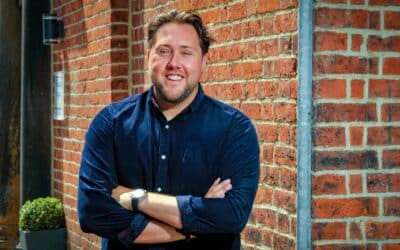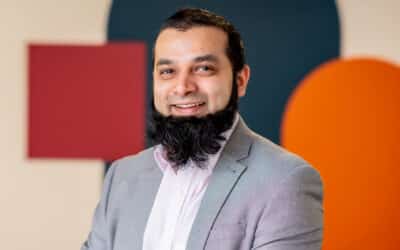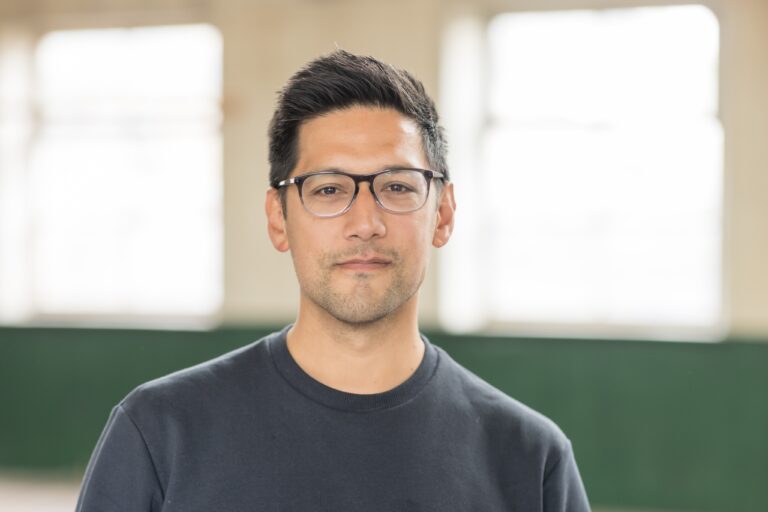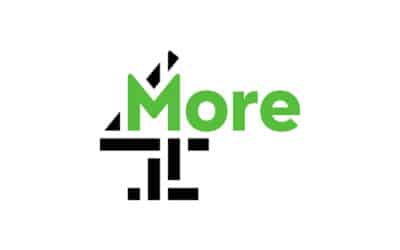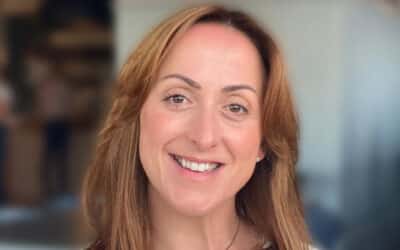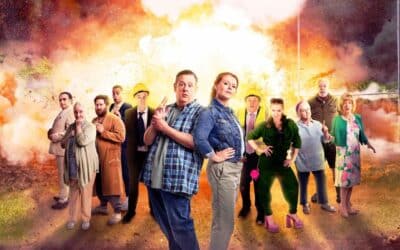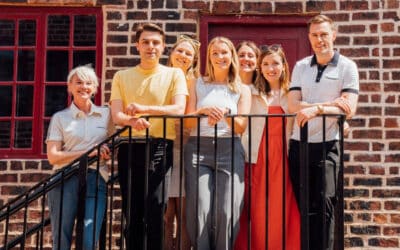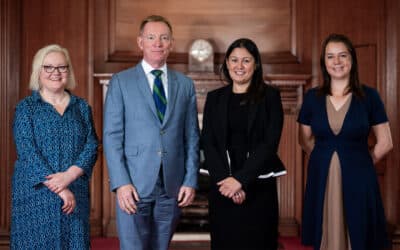Manto is a film and video production company based in Leeds.
Formerly an assistant director for the likes of the BBC and ITV, Paul Broadie set up Manto back in 2006 with a team of experienced filmmakers to craft compelling stories for leading brands.
From how he first entered the film world to industry challenges, Broadie shares a glimpse into his life and career journey.
How did you first get into your industry?
From a pretty young age I decided that I wanted to make films. I fell in love with the form and process, and whenever I thought about working, that’s the only job I could ever see myself in. I was encouraged not to study film or media at uni (advice which I give to people now) so I studied languages. After uni I spent nearly a year working in a call centre while trying to get my foot in the door of the film and TV industry, even just a day of work experience, but got nowhere.
Then I got incredibly lucky and landed myself a 12 month training placement at what was then Yorkshire TV. From there I worked in dramas and was loving it, but the hours are brutal and when my wife got pregnant I decided I had to choose between working in TV and being there for my family and it was a no brainer. So I used the skills I’d picked up, went freelance and started making videos for anyone who would hire me.
What do you love about your job?
I love the challenge of taking what our clients want to achieve. Whether it’s their message or story, it’s all about translating it into something that people will want to watch. In a sea of online content we have to make videos that will stop the scroll and I love that I get to do that in a medium that I’m passionate about.
Working with clients is, for the most part, super rewarding. When you have a client who knows what they’re doing, values your input and is nice to work with, it makes it fun. Every day I get to turn up to work with a gang of super talented people I really enjoy being around and who surprise me every day with what they’re capable of.
Who – or what – has inspired you in your career?
I’d say there have been three key inspirations in my career. The first was Sara Hanson, who ran my training programme at Yorkshire TV. She cared so much about us trainees and our success, but she wasn’t afraid to push us and encourage us to be ambitious. I can say for sure that I wouldn’t be where I am today without her input.
The second was my filmmaker friend, Tim Neeves. He was a huge help to me when I was starting out. He showed me that you could get paid to make great films about things you care about; that you could work with integrity and humility.
The third is the Manto team. I am genuinely inspired by the creativity and hard work that they show day after day and I don’t think I tell them that enough.
What are the biggest challenges about your job?
The biggest challenge of running a business is that it never stops. Even when you’re not working, you’re never not thinking about it. However well the business is doing, I can never quite shake the worry that total disaster could be just around the corner. I wonder if that ever goes away.
The biggest challenge in our industry is how fast it moves. Two years ago, we weren’t making any TikTok content. Today, we’re working on it all the time. In two more years, who knows what impact generative AI will have on what we do? We work very hard to stay ahead of the curve on it but it is a challenge.
What skills have been the most crucial to you succeeding in your career so far?
It’s a cliché but building relationships is the key skill with your team whether that’s with collaborators or clients. Yes, we need to be experts at what we do, but if we can’t work well together and we can’t get people to WANT to work with us, then we’re nowhere.
Beyond that, I think calmness in a crisis. Things will go wrong in spite of all your efforts to avoid it, so you have to be able to stop, take it in, make decisions quickly and crack on.
What was your first salary and what could someone getting into the industry expect to earn nowadays?
My first salary was a training allowance of £6,000 which got topped up a little once I was doing 14 hour days on dramas. I once worked out that I was being paid the equivalent of about £2.50 per hour.
Today, starting salaries in our industry are fairly low, probably around £20k because qualifications don’t really mean anything. If you can prove your skill and value then that can climb fairly quickly but if you’re out to make big money, you may be in the wrong line of work.
What education or training would be most useful for someone looking to follow your career path?
Practical experience trumps qualifications in our industry. I have my own particular strong feelings on this, for me too many film and media students qualify with too little practical skill and most of the best people I work with are self taught. So the best thing you can do is buy a camera, get some editing software, get on some YouTube tutorials and just learn by doing.
What advice would you have for someone looking to follow your path?
If you want to be a filmmaker it’s simple: watch stuff (lots of stuff – films, TV shows, YouTube videos, ads) and make stuff. Get it wrong, get better.
If you want to run a business, identify the skills you don’t have and find someone to help you do that thing. For me, it is accounts. I could have been much more successful much sooner if I had handed over the reigns of my accounts and admin to someone who is good at it much earlier on.

